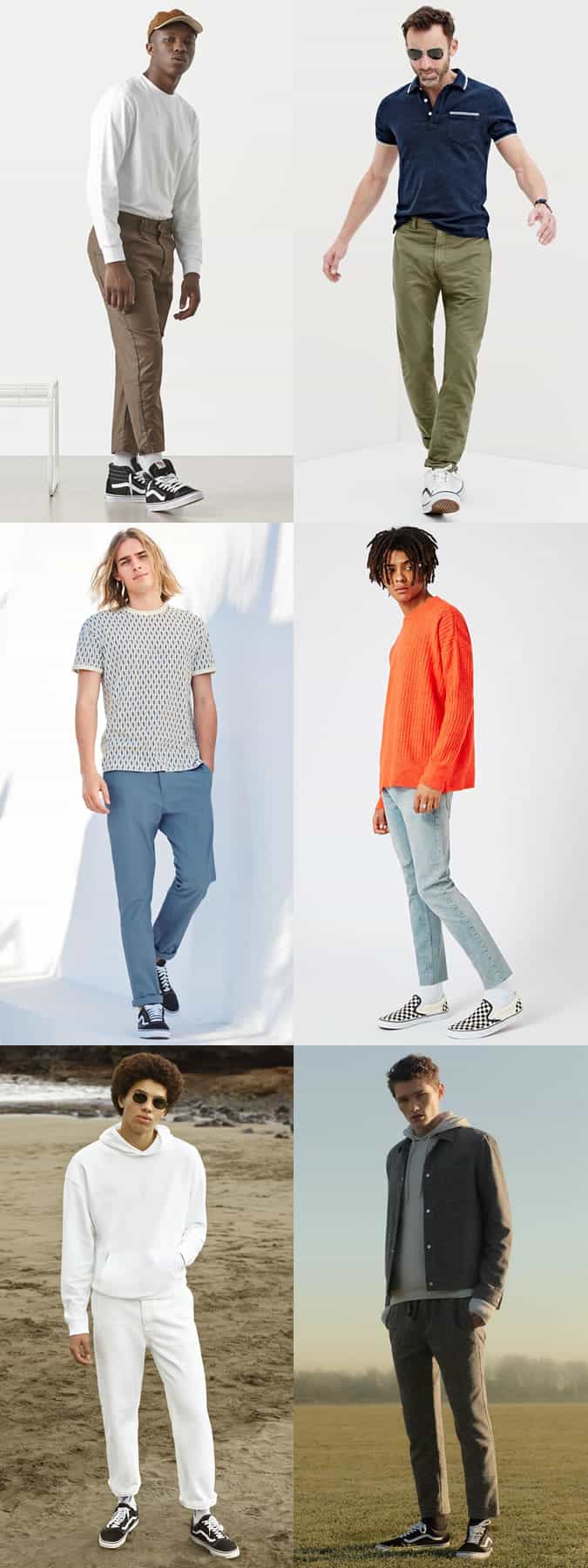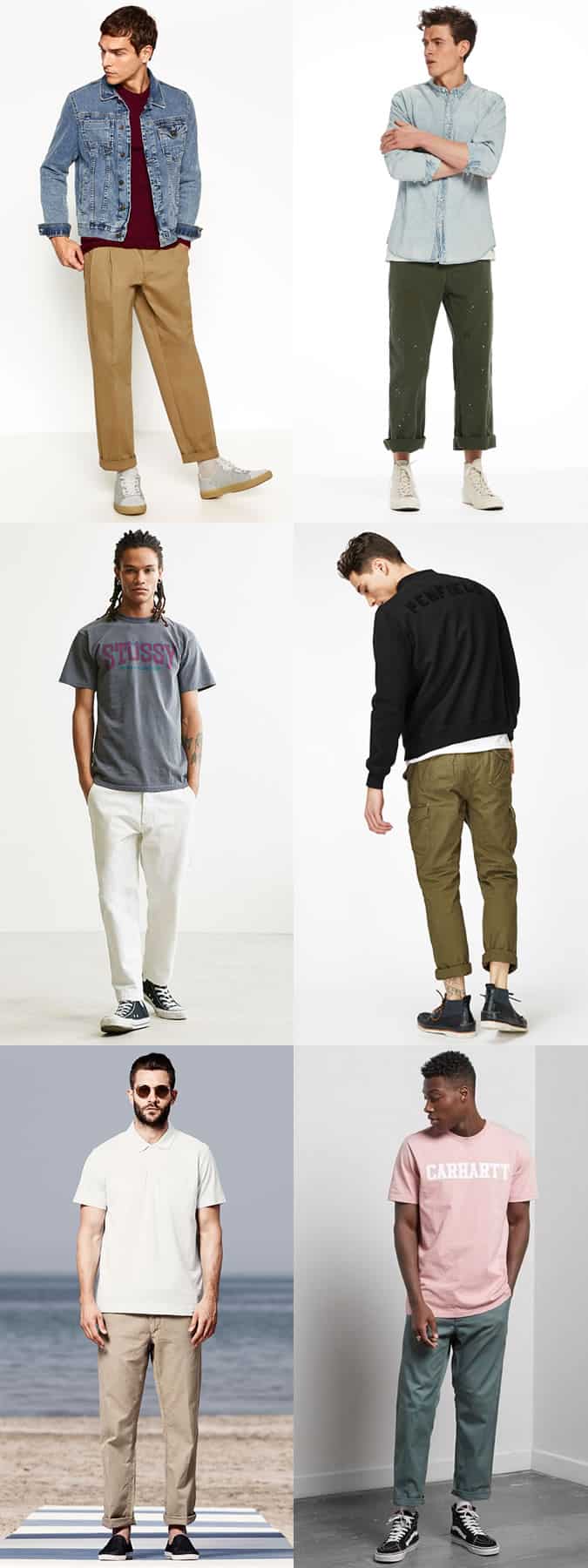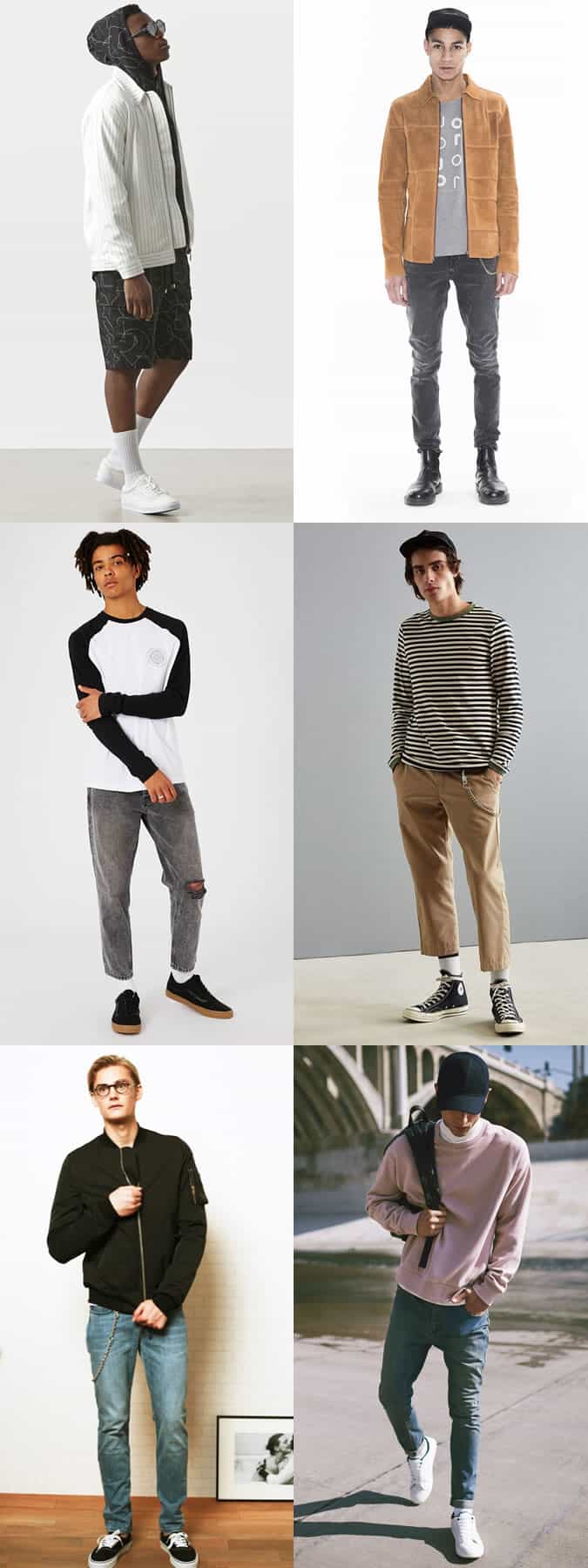If you had any lingering doubt that 1990s street culture was back, the rise of skatewear into mainstream fashion should put the matter to rest. Because suddenly it’s everywhere. The skateboarders who most fashion editors would have once shooed away from the steps of the Palais de Tokyo have been invited inside to model what hangs in their own wardrobes, albeit reimagined at 10 times the price.
Skate has always had a hard-bitten aesthetic, equal parts protective and anti-authoritarian. Thick twill trousers are robust enough to prevent concrete shredding too much skin, while a hoodie shields the face from cameras when skating where you shouldn’t. And though practicality remains a long way down most designers’ lists of concerns, it is as obsessed with the underground as ever.
What it means for the everyday guy is that some of the most comfortable and hard-wearing threads you can buy also happen to be the most fashionable. What it doesn’t mean is that Tony Hawk is the new Don Draper. You can mix and match key elements of skatewear into smart-casual looks and off-duty uniforms, borrowing stylishly from the trend without jumping around like you’re in the background of a Sum 41 video.
The Rise Of Skatewear
It’s worth stating that while brands have adopted skatewear in part as a way to lend bank balance-draining clothes some much-needed authenticity, the look’s surge is not entirely cynical. In the late 1980s, the boom in VCRs turned a niche sport into a global movement, as kids were suddenly able to share tapes of their favourite skaters.
Those kids have long since hung up their decks. But they are now at the age when increased spending power and nostalgia meet. They work in places where a suit seems out of place, and they want clothes that are stylish but comfortable. They want trousers with a little more room, shirts with a softer handle, even if they’re being tested in a co-working space rather than on a flat bank.
They also share taste with the new heads of many design houses. Gosha Rubchinskiy, for example, centres his shows around the crew he sessions Moscow’s streets with. Meanwhile, Vetements and Balenciaga boss Demna Gvasalia and ex-Louis Vuitton chief Kim Jones have both spearheaded collaboration with skate OGs Supreme.
These men – and they are almost universally men – are channelling their own and their customers’ love of skate culture into garments that reimagine and upgrade what kids have always worn on their boards.
All of which makes the ‘skater look’ an odd thing: both a blatant cash-in and a genuine expression of a subculture that has influenced streetwear since the 1960s. It also means that any man can steal the look. Even if you can only heelflip in a video game.
5 Key Skatewear Pieces And How To Wear Them
Hoodies
If you can’t (or at least don’t) skate, then co-opting the full Palace look smacks of desperation. “Wear the pieces that are a natural fit for you,” says Giles Farnham, head of River Island’s Style Studio. Hoodies are a skate staple, and this cultural cache means they can be used to nod to the aesthetic even if you don’t know your Eric Koston from your Eric Clapton.
“Try mixing skate pieces with different styles for a more balanced aesthetic,” says Farnham. “For example throw a hoodie on with smart cropped trousers and sneakers.”
This high-low approach to dressing (essentially mixing pieces from the street with the street called Savile Row) also opens the skate world to drop into everything from weekend looks to a workwear wardrobe without looking out of place.


Skate Shoes
The grip tape that forms a buffer between foot and board is like sandpaper. Its endless rubbing and scuffing means skaters value shoes that are affordable and hardwearing, since they’re only going to get battered anyway.
“Vans skate shoes have stood the test of time, but this season they’re not the only name registering on the cool scale,” says style writer Miriam Bouteba, referring to the brand that launched during skate’s first boom, in the 1960s, and has been synonymous with the sport ever since.
If you can track down a pair, then Van’s regular collaborations (notably with, you guessed it, Supreme) are still the grail. If you’re actually going to skate in them, however, opt for something from old school American firm DC. They’re almost indestructible and hit the current trend for retro sneakers.


Logo T-shirts
True streetwear is simple. Because it was cheap, brands tended not to experiment too far outside staples: hoodies, sweatshirts, caps and T-shirts. Distinctiveness came not from the cut, but from branding, which meant oversized logos and knowing spins on more established iconography.
Logos are still obsessed over now, but they’ve also cross-pollinated into the high-end worlds they used to rip-off. “Givenchy, Lanvin and Valentino have incorporated elements of the street into their seasonal collections, by factoring in looser fits and graphic T-shirts,” says Bouteba.
If the pennies don’t stretch, you can add some old-school cred by reaching for labels like Volcom and Stüssy, or nod to the new with buzzy names such as Anti Social Social Club and Bianca Chandon, which hang in skate shops and next to


Trousers
Glance at the queue for any hot collection drop, and though you’ll notice a plethora of fits up top, almost every attendee will have the same look below: straight legs with hems cuffed a few inches above the ankle.
For actual skaters, it’s a practical move: skinny jeans don’t play nice when you spend half your day squatting. And the go-to materials are equally informed by the realities of a skatepark, where the regular meetings of trouser and concrete highlight the value of robust, stain-resistant fabrics.
Cargo trousers by Carhartt and Dickies have always been the staple, picked up by skaters from workers who valued the same qualities. But if you don’t intend to test yours out on a mini-ramp, you can afford to keep the cut, but luxe them up a touch. “You just need to keep your silhouette balanced,” says Farnham. “If you’re wearing wide-cut trousers, then keep things more fitted up top.”


Accessories
The skate world prioritises function over form, but that’s not to say there isn’t room for a few embellishments.
The most recognisable item of hardware gifted to the menswear masses is the wallet chain. Originally intended as a form of metal leash to stop personal effects being lost during a 360 shuvit, and later co-opted by mall-goths, it’s a piece that’s flip-flopped in and out of favour more times than Green Day.
Baseball caps and thick white sports socks have also been absorbed, particularly in recent seasons, into mainstream style thanks to remixes by designer and high street brands, but both got their start on the half pipe and are an easy way to add an edge to a more structured look.


